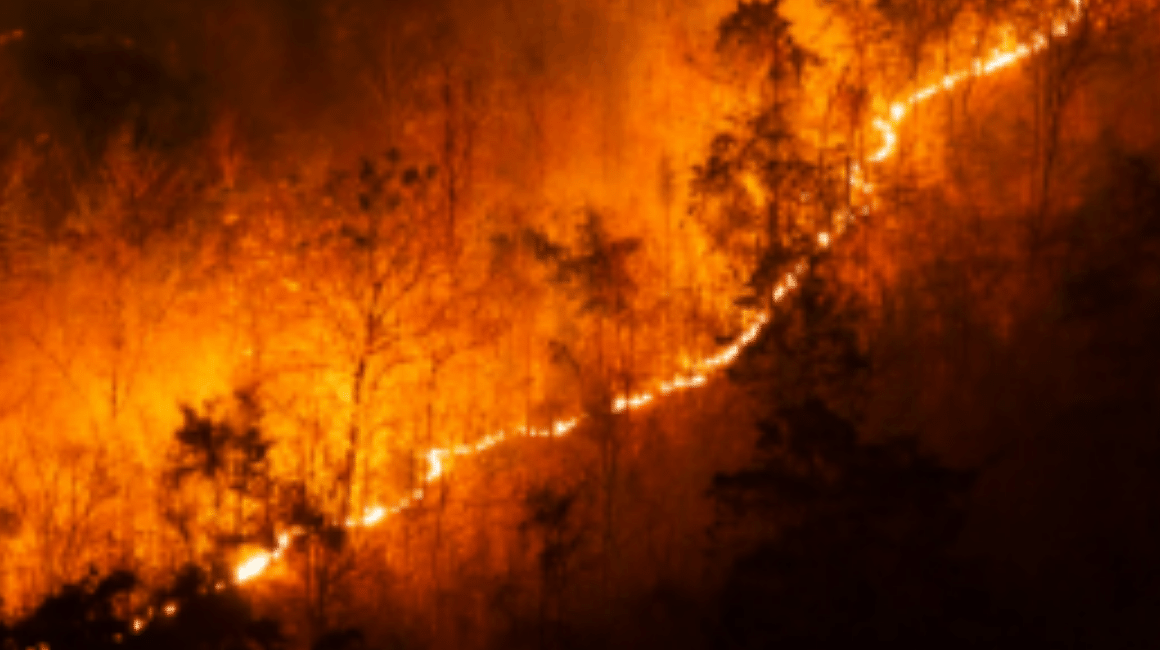It’s Time to Cool It Down: Acting in the Face of Climate Change – By Alexa Troob
It’s Time to Cool It Down: Acting in the Face of Climate Change
Author: Alexa Troob
As I sat inside looking at the orange haze through my window, hiding from the smell of smoke and dangerous air quality, I worried that this dystopian-like mid June day was a glimpse into our near future. A future in which sitting within the confines of our bedrooms is healthier and safer than being outdoors. A future in which nature can no longer be enjoyed because it is no longer existent. A future in which I do not want to take part.
I soon realized though, that this fear was, in a way, a privilege because it was only that: a fear. Here in Chappaqua, this daunting future is still an idea rather than the tangible reality that it is for many around the world. Like for those living in India amidst deadly heat waves, or for those forced to migrate from South America due to changes in climate that are hurting food production, or, of course, like for those in Canada amongst the recent surge of wildfires. For many, the future that we fear is already a reality. And though the smoke that filled the air in Chappaqua was short-lived, it made the dangers and impacts of climate change on our lives just a little more real.
While the smog is gone for now, the dangers are not. This event was not random or isolated, and therefore, it is not something that we can simply put behind us and move on from. A 2021 study supported by NOAA concluded that climate change has been the main driver of the increase in fire weather in the western United States, resulting from a combination of increase in temperature, humidity, and lack of moisture. These warm and dry conditions are largely due to human activity, and with inaction conditions like such will only worsen. In fact, according to the Center for Climate and Energy Solutions, an average annual one degree Celsius temperature increase would increase the median burned area per year by as much as 600%. And as wildfires’ frequency increases, it only continues to pollute the air and worsen the issue.
These changes will not only be events we hear about on the news, they will be events that we experience: according to Scientific American, “with the changing climates, we may see greater magnitude changes in the east than in the west.” So, when we decide how we want to act in the face of climate change, we are deciding the reality of our own lives. Aside from the great responsibility of preserving our world for future generations, we need to preserve the world for ourselves in our own lifetimes. For our health, quality of life, and the seemingly simple ability to sustain life on this earth.
If trends continue and data that points to more frequent wildfires unfolds, the fumes that filled the air for a few days in Chappaqua would no longer be so unusual. The World Health Organization highlights the dangers on both physical and mental health that arise from wildfires. Along with the injuries, burns, and deaths that result from the fires directly, resulting air pollution poses extreme respiratory and cardiovascular health risks. And of course, living in this constant state of fear and being forced to stay indoors takes an immense toll on mental health as well.
This is not meant to leave us feeling hopeless about what is to come – it is meant to inspire. If anything positive can come from these recent wildfires, let it be a wakeup call. Let it be a reminder that the future we fear is not so far away if we do not act. And let it remind us that we do have the privileges and resources to act.
Rather than sitting back as we watch the future unfold before us, we can actively create the future in which we want to live and in which we want our children to live. While large-scale governmental action is needed, this does not mean smaller-scale actions are not. We should, of course, do what we can to sway the big decisions and policies – sign petitions, email and call representatives, vote – but in the meantime, there are also ample things we can control directly right from our homes and local communities. The actions we take now decide the future with which we will forever live.


